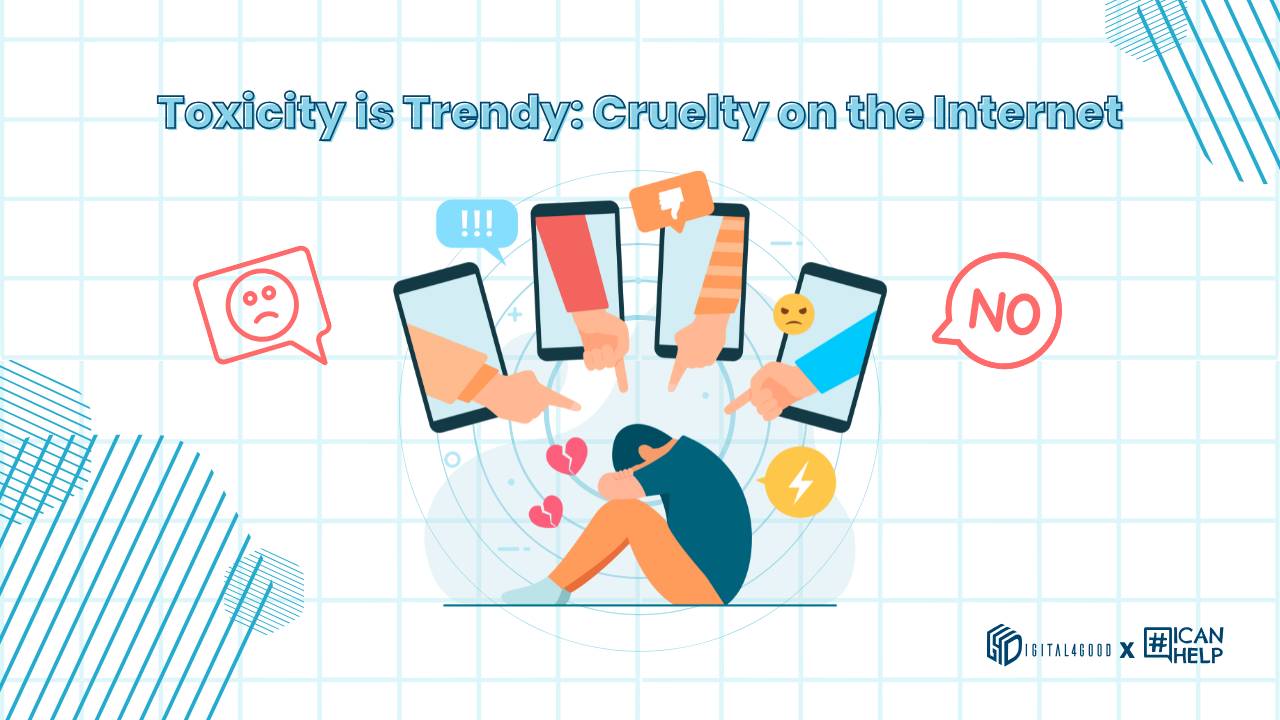Toxicity Is Trendy: Exploring the Rise of Online Cruelty
Sep 09, 2025
By: Camille Greenwell | Seasonal Public Relations Intern | Digital4Good
The Internet has never been a stranger to cyberbullying and hate comments. However, toxic behavior has escalated from isolated incidents into a global epidemic. From users blocking each other over differences in opinion to entire accounts dedicated to ridiculing others, online hate has expanded far beyond cruel words. It has become normalized and even encouraged among younger users. Why is this happening, and what can we do to avoid or prevent it?
The Increasing Influence of Online Hate
According to the Pew Research Center, 80% of teenagers ages 12-17 actively and frequently use social media sites, places where toxicity is often unavoidable. Repeated and frequent exposure to hate on social media has been known to damage psychological wellbeing. In younger Internet users, it can cause behavioral issues, increase feelings of anxiety and insecurity, and affect children’s ability to form interpersonal relationships.
Online toxicity is as easy to find as the like button under a post. With how commonplace negativity and hatred is, it’s important to ask: what compels people to act this way, and why is this behavior so normalized?
Anonymity
Social media makes it incredibly easy for people to hide behind a fake identity. The lack of face-to-face interaction emboldens people to act in ways they wouldn’t in real life. Writing nasty comments and calling people hateful names becomes so much easier without consequences.
Detachment
Despite the Internet becoming an important part of our daily lives, many choose to separate their online and real-life identities. This separation goes hand in hand with anonymity, giving users more leeway to treat others carelessly.
Social Validation
Social media is an ocean of information, and its users ride the waves of trends. Human beings are naturally inclined to mimic others’ behavior, so when a group of people are spreading negativity, others feel pressured to follow suit in order to fit in. We seek acceptance, even in situations where others are being excluded — especially to avoid meeting a similar fate.
Digital Citizenship Done Right
Practicing good digital citizenship means being intentional about what we consume and what we produce. Maintaining a positive digital footprint also aids in increasing our digital literacy, autonomy, and well-being.
If you find yourself in a toxic online environment, practice or keep the following in mind:
- Take a step back and consider how the content you consume is affecting your opinions, behaviors, and attitudes towards others.
- Put yourself in the position of the person being targeted — for example, ask yourself: “How would I feel if I received this comment?”
- Spread positivity where you see hate. Post positive comments in support of the person being targeted, or send a private message to check up on them.
- Take care of your own digital well-being. Remove yourself from toxic group chats and unfollow hate accounts.
Going against the tide of online toxicity isn’t easy, but you don’t have to go through it alone. The education nonprofit Digital4Good empowers kids, teens, and young adults with tips and resources for spreading positivity in the face of negativity. Visit our website to learn more and join the movement of students making a positive difference in the digital world.
Stay connected with news and updates!
Join our mailing list to receive the latest news and updates from our team.
Don't worry, your information will not be shared.
We hate SPAM. We will never sell your information, for any reason.


